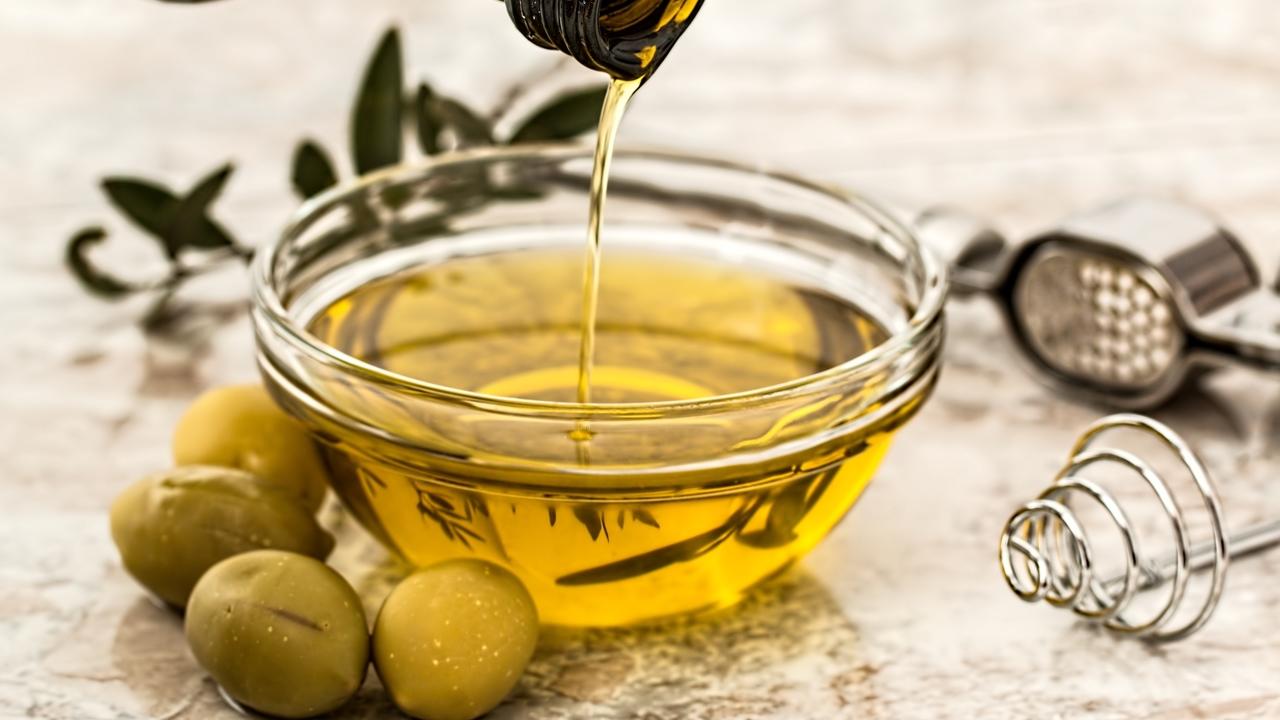The #1 Food You Should Be Avoiding

Long gone are days where low-fat diets are the key to health and weight loss. While we now know that healthy fats are not only beneficial, but crucial to a healthy diet, there is still a lot of misinformation on what types of fats we should - and shouldn’t, be eating.
If there is any food you should completely cut from your diet - it’s polyunsaturated fats!
Polyunsaturated fats are found in vegetable and seed oils, like canola oil, sunflower oil, safflower oil, peanut oil, soybean oil, grapeseed oil and corn oil. If you are cooking with any of these oils, toss them immediately!
Polyunsaturated fats are also found in nuts and seeds, commercially-raised meat, poultry, and eggs, and animals fed diets of corn and soy.
There are many reasons to avoid polyunsaturated fats, but one of the biggest is the chemical instability. The oxidation temperature of polyunsaturated fats is extremely low. This means that if they are exposed to heat, light, or oxygen (which is pretty impossible not to be), they will oxidize. Oxidation leads to free radicals, which causes cellular damage and can be the starting point of many diseases. In addition to becoming oxidized when you cook with them, the majority of these oils are highly processed- which means they are exposed to high heat before you even buy them off of the shelves.
The 4 Fat Loss Mistakes You're Probably Making
Eating healthy and doing all the "right" things, but still frustrated you're not seeing results? Click here to download this FREE guide with the most common mistakes I see people making on their fat loss journey.
Inflammation is one of the biggest drawbacks that comes with polyunsaturated fats. Eating oxidized fat increases inflammation and can be detrimental to your health- and can sabotage your weight loss journey. Inflammation can lead to diabetes, chronic disease, and obesity.1
Polyunsaturated fats contain high levels of omega-6 fatty acids. If you consume a higher ratio of omega-6 fatty acids in relation to omega-3’s, it causes inflammation in the body and the skin.2 Not only this, but an imbalance of omega-6 to omega-3’s takes a toll on your gut- a crucial part of weight loss and weight management.3
Although canola oil is high in omega-3’s, the process in which it is created strips the oil of its benefits. Canola oil is refined- which involves high temperatures and chemicals, and it easily becomes rancid when it is exposed to high temperatures and oxygen. Through this process, the majority of the omega-3 fatty acids are actually turned into trans-fatty acids, the most dangerous type of fat. Trans fats are proven to decrease HDL cholesterol and increase LDL cholesterol.
Consuming these oils regularly can lead to increased inflammation in the body and skin and cause damage to your metabolism, your gut, your thyroid, your hormonal system, your cardiovascular system, and your immune system.
Not only this, but the majority of polyunsaturated fats and oils, specifically canola, are genetically modified. Nearly 90 percent of canola oil produced in the United States is genetically modified.4
Another concern in regards to polyunsaturated fats is the toll they takes on our detox organs. Polyunsaturated fats lack oxidative stability and become rancid fairly quickly. Because of this, food manufacturers have added in synthetic antioxidants like TBHQ, BHA, and BHT. When these chemicals are consumed in large doses, they can cause liver inflammation and enlargement.5,6

While you might not be using canola oil to cook with at home, there are lots of other hidden sources of polyunsaturated fats to be aware of:7
- Restaurants: Many restaurants (even the fanciest, high-end restaurants!) use these oils to cook with because they are inexpensive.
- Snacks and Prepared Foods, like protein bars, granola, cereals, chips, hummus, dips, vegan cheeses and butters, flax seeds, and chia seeds can all contain vegetable and seed oils.
- Commercially-raised meat, poultry, and eggs: Animals that are fed diets of corn and soy will have high levels of polyunsaturated fats in their tissues (this is why it is always best to opt for 100% grass fed!).
So what should you be eating instead? Avoid polyunsaturated oils like the plague, and pick one of these instead:
- Grass-fed Butter or Ghee
- Beef Tallow or Suet
- Coconut Oil
- Avocado Oil
- Extra Virgin Olive Oil (best if used raw, however, due to it's low smoke point).
- Avocado Oil
Has your diet been high in these polyunsaturated fats? Which oils to do you usually use to cook with?
Sources:
- Kanner J. (2007). Dietary advanced lipid oxidation endproducts are risk factors to human health. Molecular nutrition & food research, 51(9), 1094–1101. https://doi.org/10.1002/mnfr.200600303
- Simopoulos A.P. (2002). The importance of the ratio of omega-6/omega-3 essential fatty acids. Biomedicine & Pharmacotherapy, 56(8), 365-379. https://doi.org/10.1016/S0753-3322(02)00253-6
- Kanner J. (2007). Dietary advanced lipid oxidation endproducts are risk factors to human health. Molecular nutrition & food research, 51(9), 1094–1101. https://doi.org/10.1002/mnfr.200600303
- Beckie, Harker, Legere, Morrison, Seguin-Swartz, Falk (2011). GM Canola: The Canadian Experience. https://www.canolacouncil.org/download/2042/canola-watch/14597/20110309_fpj_aut11_beckie-et_-al_-2
- Kahl, R., & Kappus, H. (1993). Toxikologie der synthetischen Antioxidantien BHA und BHT im Vergleich mit dem natürlichen Antioxidans Vitamin E [Toxicology of the synthetic antioxidants BHA and BHT in comparison with the natural antioxidant vitamin E]. Zeitschrift fur Lebensmittel-Untersuchung und -Forschung, 196(4), 329–338. https://doi.org/10.1007/BF01197931
- Canola Oil: Not As Healthy As You've Been Led To Believe. Retrieved October 28, 2020, from https://www.fuckcancer.org/canolaoilhealthrisks/
-
Canola Oil: Not As Healthy As You've Been Led To Believe. Retrieved October 28, 2020, from https://www.fuckcancer.org/canolaoilhealthrisks/
-
Macari, S. (2017, October 09). Are the Oils You're Eating Ruining Your Diet? Retrieved October 28, 2020, from https://www.harpersbazaar.com/beauty/diet-fitness/a10965/pufa-free-diet/




